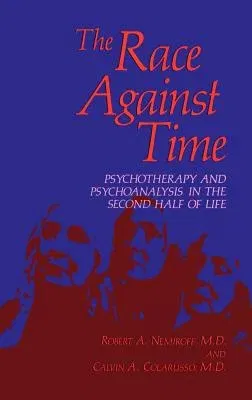This is the second book in the pioneering investigation of adult
develop- ment by Robert A. Nemiroff and Calvin A. Colarusso. The first,
Adult Development: A New Dimension in Psychodynamic Theory and Practice,
ar- rived to critical acclaim in 1981. It presented a psychodynamic
theory of development during the second half of life and a model of
normal adult functioning. This book is the logical sequel, expanding and
elaborating the original formulations and applying them to the clinical
practice of psychotherapy and psychoanalysis. Nemiroff and Colarusso
demonstrate that these are appropriate techniques for patients in the
second half of life, regardless of age. They lay to rest many
stereotypes and myths that have long interfered with the dynamic
treatment of older patients, and they propose exciting new
conceptualizations such as that of adult develop- mental arrests. The
genetic approach reaches beyond childhood and adolescence and takes on
important new meaning by incorporating an adult developmental past that
influences both psychopathology and transference. The relationship
between theory and therapy is richly demonstrated in the clinical
presentations, including ten detailed case histories of pa- tients
between the ages of 40 and BO. These and other clinical discussions
provide ample evidence that a psychodynamic approach that is based on a
sound adult developmental psychology can be extraordinarily effective.
They also demonstrate both the similarities and differences in working
with older versus younger patients. This work is a major contribution in
a long-neglected dimension of clinical psychiatry. SHERWYN M.

